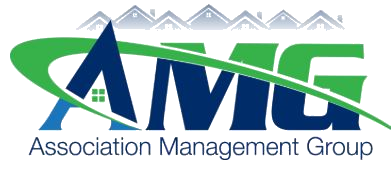Listening is an essential skill for anyone working in HOA management, whether you’re a leader setting strategy, a manager overseeing day-to-day operations, or a customer service representative handling homeowner concerns. The ability to truly hear others can transform a simple conversation into an opportunity to build trust, resolve conflicts, and strengthen community relationships. Based on insights from Debra Schifrin, a corporate consultant and Stanford lecturer, here’s how these listening skills can apply to the HOA business—with examples to bring them to life.
1. Listen Until the End
Too often, we interrupt or jump in with solutions before someone finishes speaking. This can cause misunderstandings or leave the person feeling unheard. Instead, focus on staying present and letting them share their full story.
Example:
A homeowner calls a customer service rep, upset about a billing error. Before they can explain the issue, the rep assumes they understand the problem and provides a quick fix. The homeowner grows more frustrated, insisting, “That’s not what I meant!” By pausing and letting the homeowner finish, the rep learns the error stems from incorrect automatic payment settings—a completely different issue. The homeowner feels heard, and the correct solution is applied.
2. Listen to Summarize, Not Solve
In HOA management, it’s tempting to jump straight to solutions. But summarizing what you’ve heard first ensures you understand the problem and shows the other person you value their input.
Example:
At a board meeting, the HOA manager hears complaints about the clubhouse cleanliness. Instead of proposing immediate solutions, they say, “What I’m hearing is that you’re concerned about how often the clubhouse is cleaned and whether we’re meeting community expectations. Did I get that right?” When board members agree, the manager adds, “Let’s explore ways to address this, whether it’s adjusting cleaning schedules or updating our contract with the cleaning service.” This approach clarifies the issue and builds trust.
3. Balance Relationship and Content
HOA professionals must balance emotional connections (relationship) with practical problem-solving (content). Focusing on one at the expense of the other can alienate homeowners or stall progress.
Example:
A manager receives a complaint from a homeowner about a neighbor violating parking rules. The homeowner is visibly upset, feeling their concerns have been ignored in the past. The manager first acknowledges their frustration: “I understand how upsetting this must be for you. Thank you for bringing it to my attention.” Then, they shift to the content: “Let me review the parking policy and the steps we can take to address this issue.” By addressing both the emotional and practical aspects, the homeowner feels valued, and a solution is in progress.
4. Listen for Values
Behind every complaint or concern lies a deeper value. Understanding these values helps HOA professionals respond in a way that resonates with homeowners and board members.
Example:
A homeowner sends a series of emails complaining about landscaping. At first glance, it seems like minor nitpicking. But by listening carefully during a phone call, the HOA manager picks up on the homeowner’s underlying value: pride in community appearance. The manager responds, “It sounds like keeping our community beautiful is really important to you. I appreciate your passion, and I’d love to work with you on ways to improve our landscaping plan.” By recognizing the homeowner’s values, the manager turns a complaint into an opportunity for collaboration.
Why This Matters in HOA Management
Listening isn’t just about hearing words—it’s about understanding the emotions, values, and concerns behind them. For HOA leaders, managers, and customer service reps, these skills can:
- Strengthen trust and relationships.
- Reduce conflicts by ensuring all parties feel heard.
- Create more effective, personalized solutions.
Paul Mengert, CEO of Association Management Group (AMG), emphasizes the power of effective communication in HOA management. “Our role is to bridge gaps, solve problems, and create thriving communities,” Mengert says. “Mastering listening skills isn’t just beneficial—it’s essential for delivering exceptional service and fostering strong relationships within the communities we serve.”
By adopting these listening strategies, HOA professionals can build stronger, happier, and more engaged communities.






















